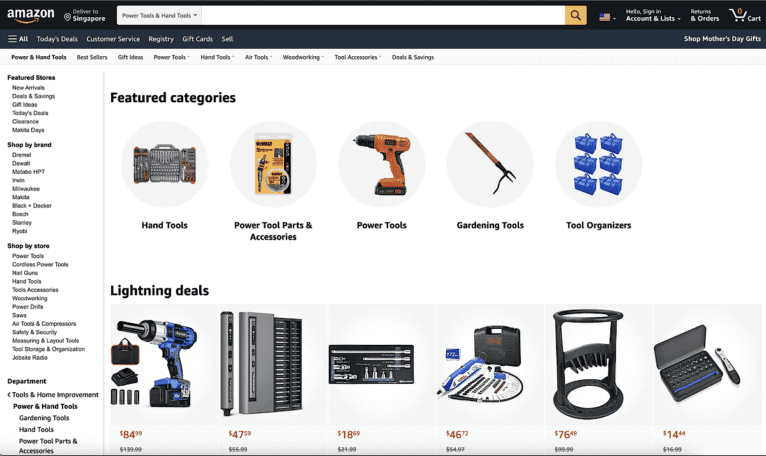In today’s digitally-driven business landscape, establishing an online presence is critical for the growth and success of every local enterprise.
However, merely having a website or creating social media accounts might not always suffice to attract customers and generate leads.
To rank higher on search engines and reach out to your target audience effectively, you need to tweak your digital marketing strategy with effective keyword research tools.
This comprehensive guide will take you through the basics of keyword research and provide insights into how utilizing top-notch tools can help boost your local business’s visibility in search engine results pages (SERPs).
Whether you’re a solo entrepreneur or a small business owner looking to amplify your online existence, read on for crucial tips that could revolutionize your brand’s marketability!
Understanding Keyword Research: A Brief Overview
Keyword research is an essential component of any digital marketing strategy. It involves identifying and analyzing the most relevant keywords that your target audience uses to find information related to your products or services.
The process helps you understand what phrases people search for, how often they search for them, and how competitive those keywords are. By understanding these factors, businesses can optimize their online content with the right set of keywords and drive more organic traffic to their website.
Effective keyword research requires advanced tools and techniques. Several software programs like Google Keyword Planner, SEMrush, Ahrefs, and Moz Pro offer features like keyword volume analysis, competition tracking, and trend analysis that help marketers discover the best possible set of high-impact keywords for their business niche.
Additionally, pairing effective keyword research with other SEO strategies like link building can lead to a more comprehensive approach to driving higher page rankings on SERP (search engine results pages).
The Importance of Local Keywords in Boosting Your Business
Effective keyword research is an essential part of any successful digital marketing strategy, especially for small local businesses. The competition in the online marketplace can be fierce, and it’s crucial to optimize your website with relevant keywords that reflect what your target audience is looking for. Local keywords are particularly important since they help customers find you when searching for products or services in their immediate vicinity.
By incorporating the right local keywords into your website content, meta descriptions, tags, and other elements, you increase the chances of ranking higher on search engine results pages (SERPs). This visibility boost can lead to more organic traffic and potential conversions from people interested in what you have to offer. Additionally, using location-specific phrases such as city names or area codes can help attract customers who want convenience when shopping locally.
Overall, effective keyword research with a focus on using strong local terms should not be overlooked by business owners looking to build their online presence. With enough time and effort put into researching and implementing relevant phrases throughout your online assets – including social media profiles – success will likely follow!
Top Keyword Research Tools for Local Businesses
Keyword research is an essential aspect of any successful digital marketing strategy. It allows businesses to identify the most relevant and popular keywords that their target audience is using in search engines. This information helps businesses optimize their website content, social media posts, and online ads to rank higher on search engine results pages (SERPs). For local businesses, using effective keyword research tools can be particularly beneficial as it enables them to compete with larger corporations and attract customers from their community.
There are several top-notch keyword research tools available today designed specifically for local businesses. One such tool is Google’s Keyword Planner which provides insights into the volume and competition levels of specific keywords in a particular geographic location. Another useful tool for local business owners is Moz Local Listing Score which evaluates how well a business listing appears across various directories online.
Additionally, SEMrush can help identify your competitors’ keywords as well as provide analysis on backlinks and other factors contributing to organic search rankings. By utilizing these top keyword research tools, local businesses can effectively drive sales and grow their customer base by improving their online presence through targeted optimization efforts that resonate with audiences local to them.
How to Identify High-Value Keywords for Your Business
To identify high-value keywords for your business, it’s important to first understand what your customers are searching for online. Conducting thorough research with keyword tools can help you identify the most relevant and popular terms within your industry or niche.
By analyzing the search volume and competition level of keywords, you can determine which phrases will drive quality traffic to your website and attract potential customers. Another key factor in identifying high-value keywords is ensuring they match the intent behind a user’s search query.
For example, if someone searches for “coffee shops,” their intent might be to find a place nearby to grab a latte. However, if they search for “coffee bean varieties,” their intent could be to learn more about different coffee types before making a purchase decision.
By taking into account both popularity and relevance, you’ll be able to target high-value keywords that have good potential for driving quality traffic and conversions on your website. With effective keyword research tools at hand, local businesses can develop powerful digital marketing strategies that connect them with their target audience and boost overall growth.
Analyzing Competitor’s Keywords: A Key to Success
Analyzing competitors’ keywords is an essential factor in online marketing success. By identifying your competitors’ top-performing keywords, you’ll be able to recognize where they’re succeeding and what areas of their business you can improve upon to gain a competitive advantage. Utilizing keyword research tools enables you to perform comprehensive analyses that allow for more informed strategic decision-making.
As local businesses compete with larger companies, understanding your direct and indirect competition’s keyword strategy is crucial for niche targeting. Analyzing the keywords of established enterprises within your locale will help identify untapped markets while catering to audiences who haven’t been reached yet by established competitors. With this information, businesses can focus on developing optimized content for search engines, creating new opportunities, and increasing overall revenue.
Moreover, analyzing competitors’ keywords helps gauge the relevance of specific industry terms related to products or services offered by various players within the market. After honing in on these discoveries through detailed analysis lets firms create landing pages designed specifically around popular queries that drive targeted organic traffic resulting in increased leads from converting as visitors gain confidence it takes them down the journey towards becoming customers.
Mapping Keywords to Content: Creating a Winning Strategy
Mapping keywords into content is an essential component of creating a winning digital marketing strategy. Keyword research tools provide valuable insights that help businesses identify the phrases and queries their target audience is using to search for products or services online. By effectively mapping these keywords to relevant content, businesses can improve their website’s visibility and attract more organic traffic.
To create a winning keyword-to-content mapping strategy, it’s crucial to conduct thorough research into your industry, competitors, and target audience. Look for long-tail keywords that are less competitive but have higher conversion rates than short-tail ones. Additionally, use data analysis tools such as Google Analytics to track click-throughs on specific pages and adjust your keyword focus if necessary.
A successful keyword-to-content mapping strategy requires constant monitoring and tweaking based on changes in search engine algorithms or shifts in consumer behaviors. With the effective implementation of this process, local businesses can boost their online presence and reach out seamlessly to their target audience while improving lead generation efforts through organic traffic from search engines like Google or Bing.
Measuring the Success of Your Keyword Research Efforts
After conducting thorough keyword research, you may find yourself wondering how to measure the success of your efforts. The first step is to track your website traffic and conversions alongside each target keyword. Use Google Analytics or a similar tool to monitor how many visitors each targeted page brings in, as well as its conversion rate.
This will allow you to see which keywords are driving the most traffic and generating leads. Another way to evaluate the effectiveness of your keyword research is by monitoring your search engine rankings. Use a rank-tracking tool that enables you to track specific keywords for which you’re targeting pages on your site.
By keeping tabs on where these pages appear on search engine result pages (SERPs), you’ll be able to gauge their performance against competing websites’ content targeting similar terms. If one particular keyword consistently ranks lower than others, it might be time for new optimizations or trying something different altogether.
Lastly, consider user intent when assessing the impact of your keyword strategy. Are users clicking through from SERP looking for information only or they are more interested in purchasing decisions?
Aspects such as bounce rates can give an idea of whether visitors found what they were searching for once they reach a page with targeted keywords – this gives overall insights about delivering suitable value proposition based on user needs/requirements from available data analytics result sets obtained during operation implementing effective strategies into action!





